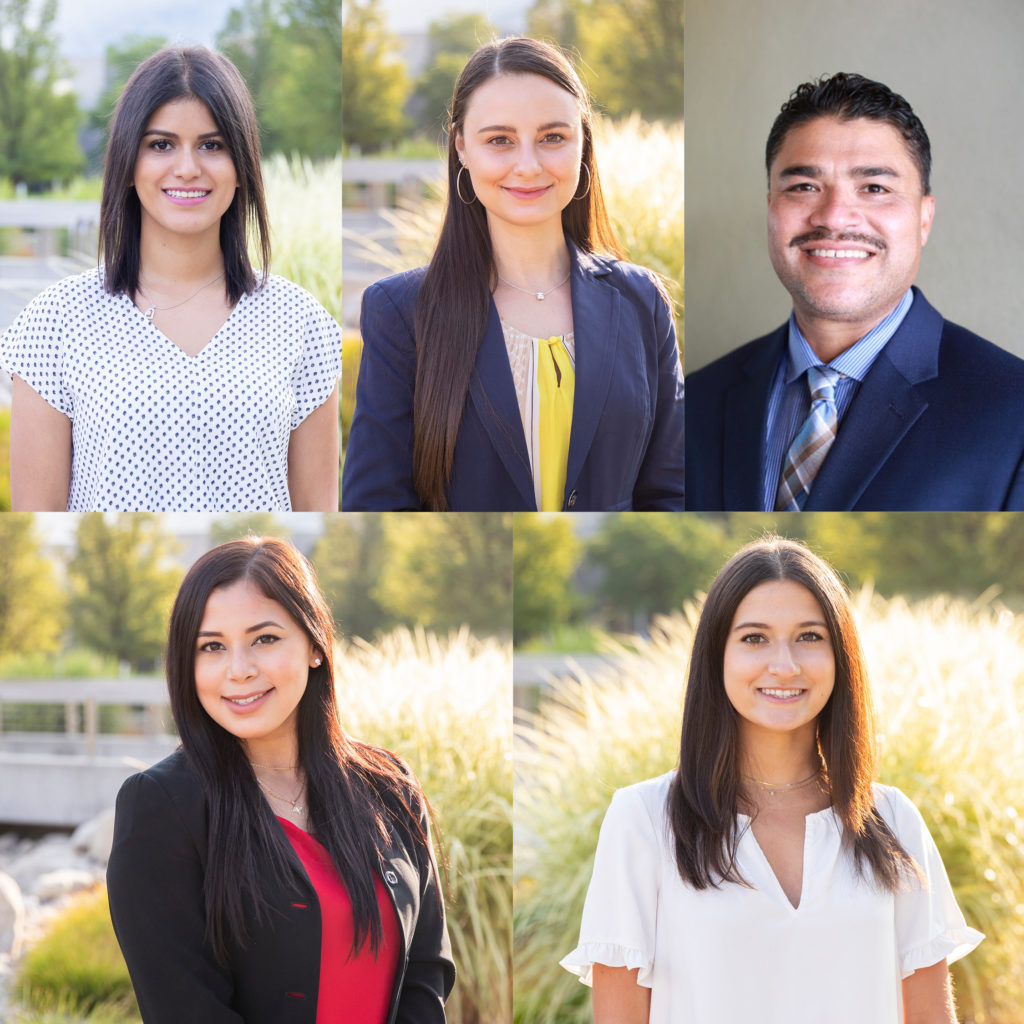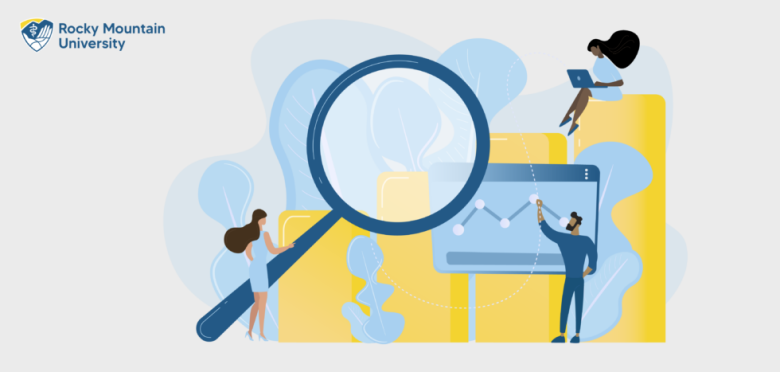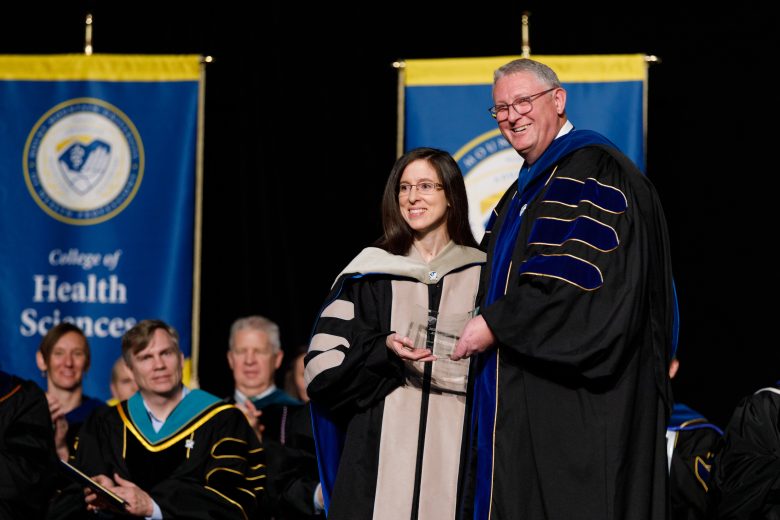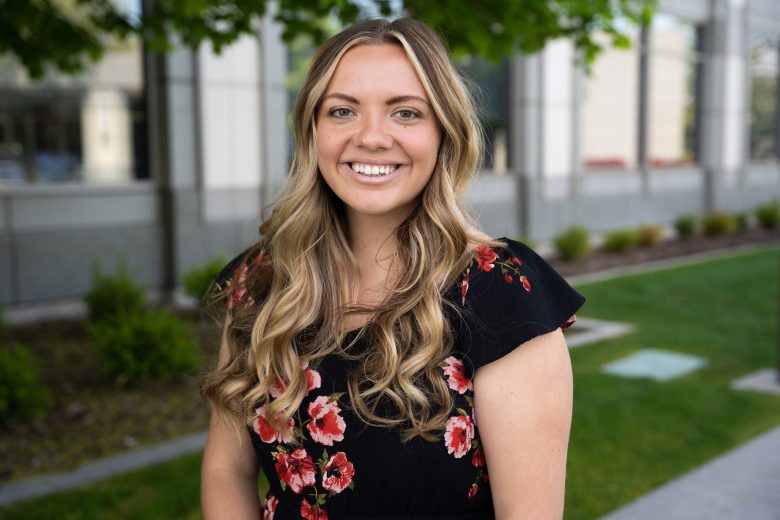
In honor of National Hispanic Heritage Month, Rocky Mountain University of Health Professions (RMUoHP) students and recent graduates of Hispanic heritage reflect on how their cultural heritage influences them as healthcare providers.
Camila Gonzalez, a student in the Master of Science in the Medical Speech-Language Pathology (MS MedSLP) program, explained that her cultural heritage has helped her ability to communicate with those who come from similar backgrounds.
“I was born in Rio Piedras, Puerto Rico, and my family moved to Dallas, Texas, when I was about a year old,” said Gonzalez. “I still visit Puerto Rico around one to two times a year, as I still have family and friends that live there. Even while living in Texas, however, I was around many other Hispanic people which made it easy for me to maintain speaking Spanish.”
Her heritage and Spanish-language abilities impact her as a healthcare provider, she says, “because I am able to understand the way that Hispanic people communicate with each other, not just in the literal sense, but in a cultural sense as well.” She adds, “It makes me proud to be able to understand the unspoken communication styles of my spanish-speaking patients, as Hispanic cultures are very symbolic and family oriented,” said Gonzalez.
Like Gonzalez, MS MedSLP student Veronica Lima appreciates that her own diverse background provides her the opportunity to better connect to others of diverse backgrounds and circumstances. Born and raised in Miami, Florida, Lima’s father is Cuban and her mother is Spanish, and throughout her school years, she learned to read, write, and speak Spanish.
“As a clinician, my culture has given me opportunities to understand traditions that are specific or similar to mine,” Lima said. “Because of my values and beliefs, I’ve gained a stronger ability to connect with others–that’s what is really fulfilling to me.”
She adds, “Diversity among healthcare providers leads to more respect and understanding for other cultures. We can offer services that meet the unique social, cultural, and linguistic needs of our patients across all settings.”
For MS MedSLP student Darcy Paola Valadez-Ramos, much of her passion for healthcare comes from her family. After leaving Mexico for the US and with no English and foundations in which they could support themselves, her parents “worked hard to start the life they had dreamed of for themselves and their children. Out of so little, they created a family, private business, and new hopes and dreams. My family is my greatest inspiration!”
Her heritage is a large part of who she is and the future ahead of her in healthcare. “My Mexican culture and heritage have shaped my life and opened doors of opportunity by allowing me to connect with others. I am proud to be of Hispanic descent and grateful to live in this country,” said Valadez-Ramos.
“My heritage fosters my understanding of different cultures and has taught me to be sensitive and respectful of all of our differences,” said Valadez-Ramos. “My heritage enables me to work effectively cross-culturally by meeting patients’ social, cultural, and linguistic needs.”
MS MedSLP student Alexia Carillo Sanchez, from Zacatecas, Mexico, understands how her heritage helps her to better understand and work with patients.
“My heritage has enabled me to be more sensitive and respectful of other ethnicities, cultures, religions, etc.,” said Sanchez. “My heritage has allowed me to understand patients from a different point of view that others may or may not experience difficulty understanding.”
In the future, Sanchez hopes to use her cultural experiences to further help patients from all backgrounds.
“My heritage has facilitated patient advocacy and increased communication for better patient care,” said Sanchez. “I am certain that my heritage will continue to allow me to advocate for patients, not only for Latinos, but all other ethnicities and cultures.
Victor Pulido, PhD, ATC, a recent graduate of the Doctor of Philosophy in Health Science-Athletic Training, also shared his experiences with his cultural heritage.
“Growing up in Los Angeles and working in my hometown of Culver City provides me with an advantage on knowing where my student-athletes come from and their socioeconomic environment,” said Pulido. “I understand their needs, which helps me provide better care.”
He adds, “With the current health concerns we are facing in this world, it is important to have a healthcare provider that looks like the patient, to educate them on health concerns and to provide sound health advice that they can trust,” said Pulido.
Gonzalez explains why diversity and education on diversity is important, “Understanding diversity in healthcare is the best way to provide patient-centered care. Not every patient we see will look like us, speak like us, and think like us. It is important to be educated on diversity in healthcare, as the United States of America does not have just one face.”
As Carillo puts it, “diversity enables patients to be represented and understood, ultimately increasing better treatment.”



